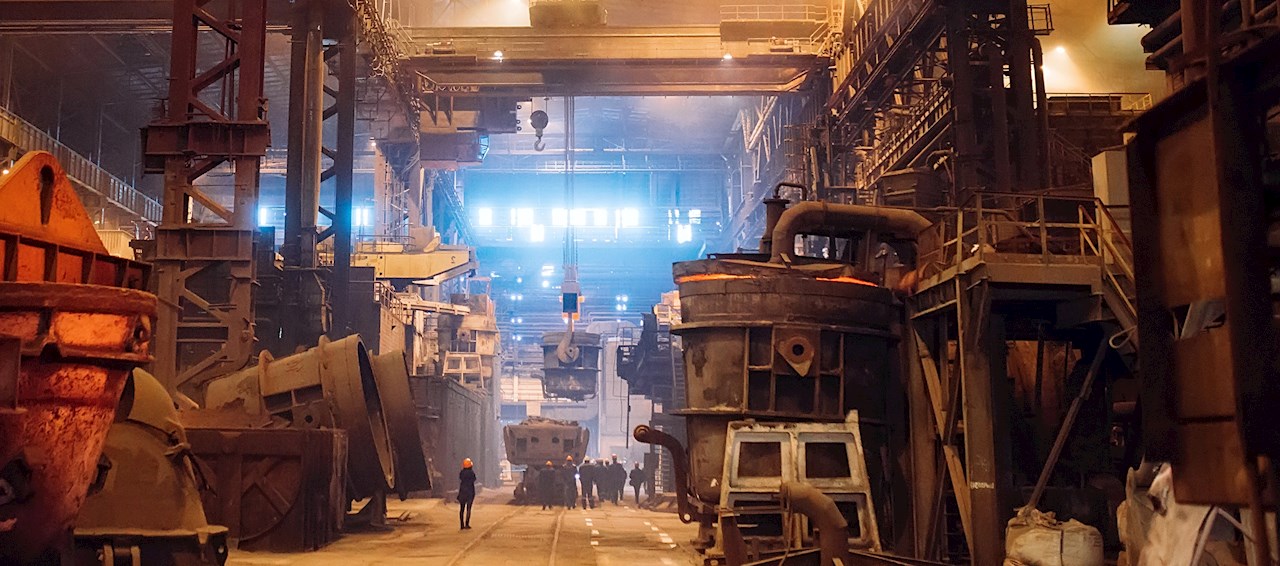ABB is today launching a new report that considers carbon capture, hydrogen and electrochemistry as routes to decarbonizing primary steel production. It spotlights innovative new technology developments and approaches in Brazil, China, India, Sweden and the US – the countries that are leading the way towards fossil-free steel. It includes insights from leading steel manufacturers SSAB, Tata Steel and Aperam, as well as experts from the American Association for Iron and Steel Technology and ABB.
The new ABB report named ‘What does the journey to fossil-free steel look like? How to achieve a sustainable future’ discusses decarbonization challenges including cost, the complexity in transitioning to lower carbon technologies and access to hydrogen, clean electricity, high grade iron-ore and fossil-free carbon and lime.
Current steel production is carbon and energy intensive and classified as one of the six ‘hard to abate’ sectors. Globally, the steel industry is responsible for an estimated 8 percent of the world’s energy demand and generates between 7 percent to 9 percent of CO₂ emissions – most of which are from burning fossil fuels, according to various sources including the recent International Energy Agency (IEA) Iron and Steel Technology Roadmap.
To meet the criteria set out in the United Nations Paris Agreement on climate change and limit the global temperature increase to below 1.5 °C compared with pre-industrial levels, the steel industry must achieve a target of net zero emissions by 2050. This will require radical transformation, especially in context of global steel demand which is projected to rise 30 percent by the same date.
The ABB report spotlights fossil-free steel innovation in five steel producing markets. These include:
- the Hydrogen Breakthrough Ironmaking Technology (HYBRIT) piloted in Sweden by steelmaker SSAB, state-owned iron ore miner LKAB, and state-owned energy company Vattenfall to make steel using green hydrogen and fossil-free electricity using the high grade iron ore from the LKAB mines instead of coking coals;
- the ResponsibleSteel™ industry association-backed Aperam, which has interests in stainless steel and agriculture, and the use of charcoal produced from its own 100,000 hectares of FSC®-certified forests in Brazil as a renewable substitute for coal-based coke in steelmaking to significantly reduce CO₂ and entirely eradicate the use of extractive coal;
- the HIsarna process by Tata Steel in India which uses a powdered form of the raw ore material instead of processed ores such as coke, sinter or pellets to make liquid pig iron and can reduce emissions by up to 20 percent compared with the traditional Blast Furnace-Basic Oxygen Furnace (BF-BOF) method.
“Digitalization is not only intrinsic to collaboration between entities but to optimizing the use of resources and energy management, and in providing the traceability required to keep organizations accountable to emissions targets,” said Shiva Sander Tavallaey, Senior Principal Scientist at ABB Corporate Research Center.
The ABB report presents actions that steel producers can make now to reduce carbon in the short and medium term as well as steps to take with industry suppliers and partners to work together towards a fossil-free steel future.
“Regulatory, commercial, and social drivers are accelerating the journey to decarbonize steel,” said Frederik Esterhuizen, Global Business Line Manager for Metals at ABB. “But to address the core challenges set out in ABB’s report and phase out fossil fuels, the steel industry will need powerful, integrated solutions and must collaborate at every level of the global steel supply chain in order to succeed.”
“A digital, autonomous and fossil-free steel industry is possible through partnership. ABB is taking an approach of partnership and collaboration to integrate innovative technology with ABB’s existing portfolio for the steel industry. Initiatives from around the world show that the industry is committed to a sustainable future, with several promising developments in the works. Through innovation and partnership, a green steel future is an achievable reality.”
To view the ABB report: ‘What does the journey to fossil-free steel look like? How to achieve a sustainable future’ visit https://new.abb.com/metals/what-does-the-journey-to-fossil-free-steel-look-like
ABB’s Process Automation business automates, electrifies and digitalizes industrial operations that address a wide range of essential needs – from supplying energy, water and materials, to producing goods and transporting them to market. With its ~20,000 employees, leading technology and service expertise, ABB Process Automation helps customers in process, hybrid and maritime industries improve performance and safety of operations, enabling a more sustainable and resource-efficient future. go.abb/processautomation
ABB is a technology leader in electrification and automation, enabling a more sustainable and resource-efficient future. The company’s solutions connect engineering know-how and software to optimize how things are manufactured, moved, powered and operated. Building on more than 140 years of excellence, ABB’s ~105,000 employees are committed to driving innovations that accelerate industrial transformation. www.abb.com
Source and Image Credit: ABB

